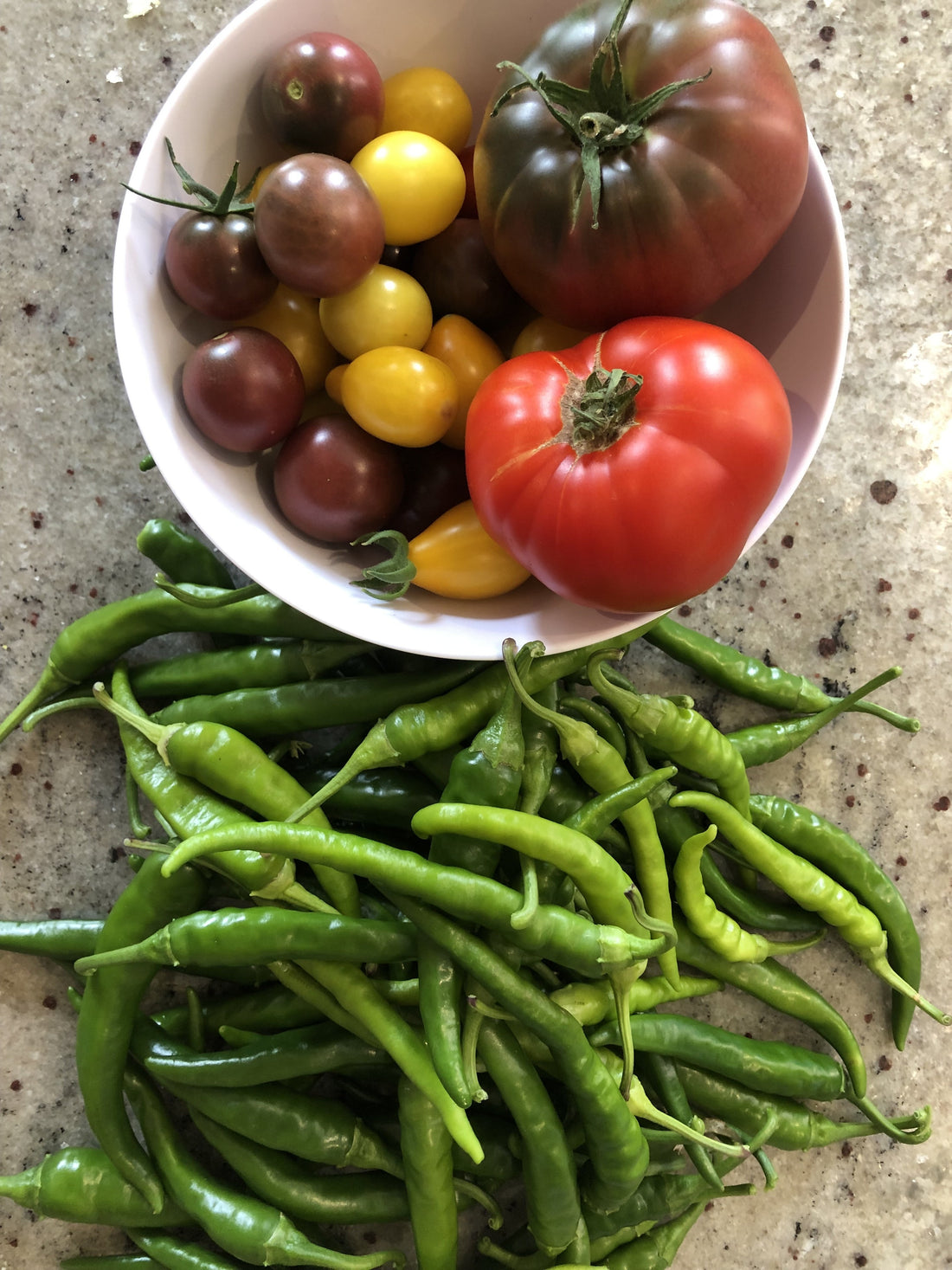
What things are important for you to consider before creating an edible garden?
What things are important for you to consider before creating an edible garden?
- Sunshine
It’s important to understand the biology of the plants you’re going to grow. For most vegetable and herb plants, for them to thrive they require a minimum of 6 hours of sunlight per day. Quick science lesson: sunshine is essential for photosynthesis, which is the plant's way of converting things like CO2, water and sunlight into energy. The last thing we want is to put in the time and effort to building a beautiful garden space, and there not be enough sunshine for growth.
Sun conditions will also change when the seasons chance and the environment around us adjusts. For urban gardens, a front porch or a balcony tends to be a great place for a small garden with mostly leafy greens and herbs as they are able to thrive in partially sunny areas.
Want to test your available sunlight? Take a photo of the spot you are hoping to establish your garden as frequently as possible throughout one day.
- Space
We want to ensure that we can have the size garden that is going to work with our lifestyle and with our available spaces. Urban gardens tend to experience the challenge of limited space, and we have to be strategic in the things we decide to plant. Some plants will sprawl and continue to grow beyond their allotted space, so let's stick to plants that stick to their space. A great option for those of you who have very limited space available is the vertical space, try planting vegetables that climb - such as beans, cucumbers or peas. You also want to establish your garden in an accessible location, as well as in a spot that isn't going to interfere with the rest of your environment.
- Pests/Animals
This tends to be more of a concern for outdoor gardens, but indoor plants will attract some little friends in your home as well.
Outdoor gardens: Consider some of the habitats that may be located close to your home. If you live by a ravine or green space, your garden may be at risk to some larger pests such as raccoons or skunks. Urban outdoor gardens tend to attract more smaller animals such as squirrels, rabbits or pigeons.
Indoor gardens: Consider the insects that your plants may attract. I know for myself, fruit flies often gather on my indoor plants, and multiply pretty quick. You may want to put a cup with syrup, cover it with seran wrap, poke a few holes in the top and give a space for the flies to go instead of eating your veggies.
Another thing to bear in mind is if you have any domesticated animals in your home, be sure to check if a certain herb or vegetable is not good for the animal to ingest before planting it. For those of you with dogs, you may want to consider putting the garden on a higher surface, hip height or above.
- What to plant?
This is the fun part! What are your food preference? Which food do you find yourself constantly buying at the grocery store? What herbs would you enjoy to fresh to garnish your food with? How much of a yield do you need for your family - is it just you living in your space, yourself and a partner, multiple people?
When planting, it is also important to decide whether you will be planting seedlings or plants. For many herbs and vegetables such as beans, carrots, peas, beets, they often grow best when planted as seedlings directly into the garden’s soil. Alternatively, plants such as tomatoes, peppers and eggplants perform best when planted inside and after the growth has begun transplanted into your main garden.
Only buy enough seeds for the season, seedlings often have a limited time span and may not be able to be used the following year.
Do you need help with your garden? Do any of the points above feel overwhelming for you to think about? Contact the Healthy Garden Co. to get a quote for your new garden. We offer a wide range of services including building and maintaining your garden. Find more information about all our offerings at www.thehealthygardenco.com.